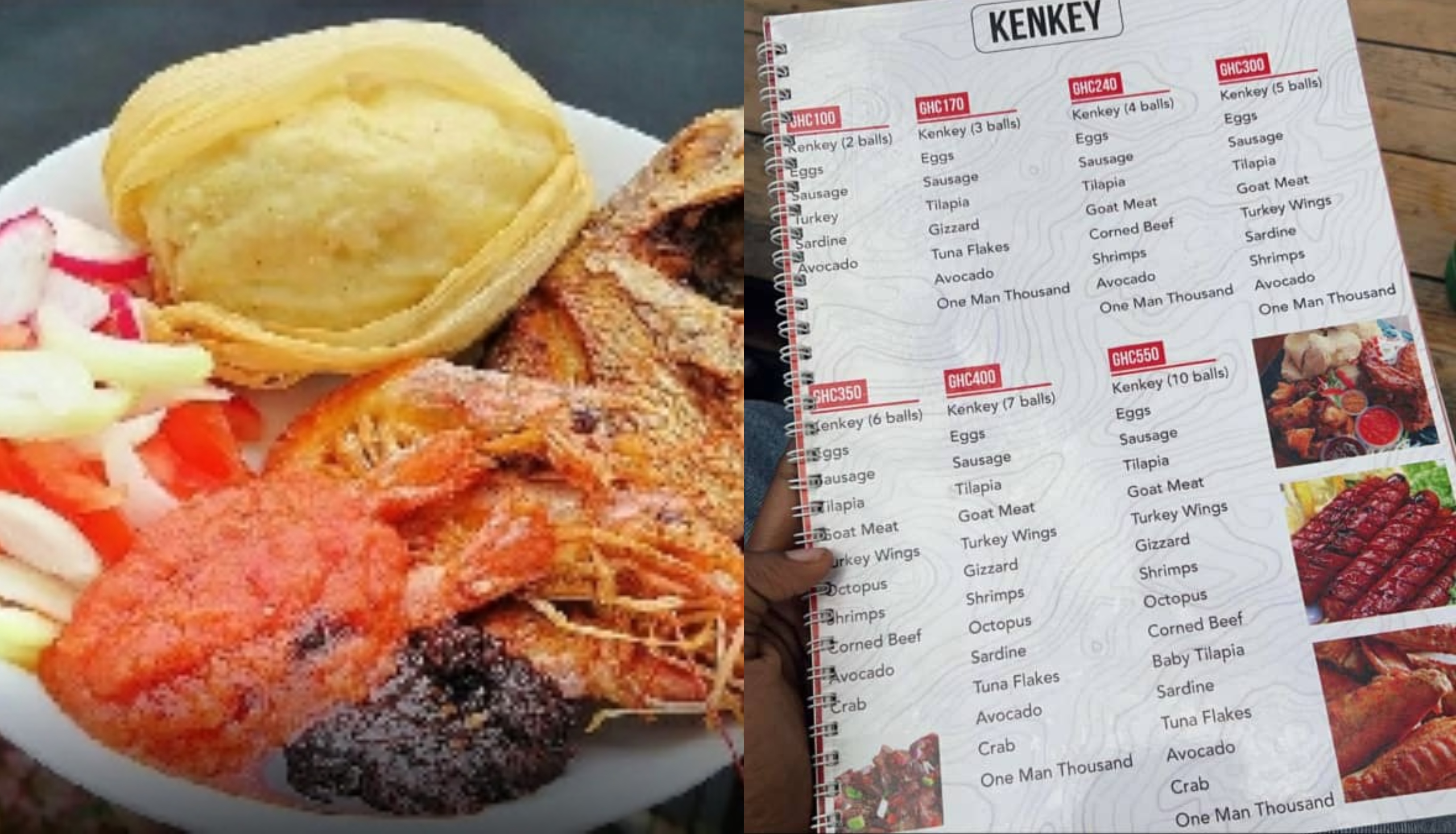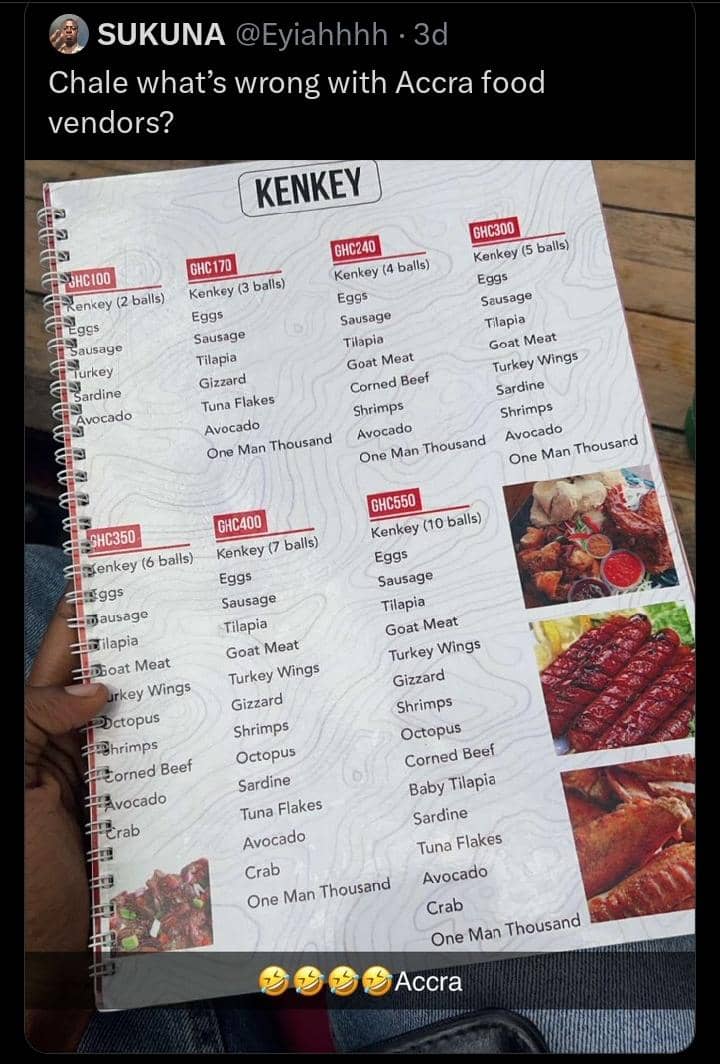
A social media post on X has sparked widespread outrage and disbelief after a user shared a photo of a menu from a food joint with prices that can only be described as astronomical.
The menu, which appears to be from a trendy eatery in Accra, lists several packages of kenkey with accompaniments ranging from GHC100, which consists of two balls of kenkey, eggs, turkey, sausage, sardine, and avocado, to a staggering GHC550 for ten balls of kenkey and its assorted accompaniments.
X user @Eyiahhhh shared the photo with the caption, Chale what’s wrong with Accra food vendors?, and it quickly went viral.

As of now, the post has garnered over 263,000 views, more than 400 quotes and reposts, and hundreds of comments, with many users expressing their shock and disbelief at the prices, while others defended the prices.
Dokono nkoaa five millien (Kenkey for GHC500), @the_zene replied. Kenkey 5gh and red fish 10gh I chop today sef I vex prices see fooling, added @g0ldbrickgang. Baby tilapia… mpatoa ooo, jested @sirlorm_G.

In defence, some blamed it on the cost of food items, while others attributed it to the phenomenon of demand and supply. @BobbyShm1 commented, Kenkey no dey cost for Accra o but the fish and the meat no ahaa, and @samuelkwakye58 added, Don’t forget that demand goes hand in hand with supply. Don’t blame the vendors, put the blame at the doorstep of customers. If you talk p3, they will tell you, you don’t have money.

The food joint in question has yet to respond to the backlash, but it's clear that their pricing strategy has struck a chord with X users.
In recent years, Ghana has experienced significant food inflation, driven by various factors such as rising production costs, fluctuating exchange rates, and supply chain disruptions. The impact of global events, including the COVID-19 pandemic and the Russia-Ukraine war, has further exacerbated the situation, leading to increased prices for essential commodities.
Local factors, such as poor infrastructure, weather-related challenges, hike in transport fares and the depreciation of the Ghanaian cedi, have also contributed to the upward pressure on food prices. As a result, the cost of basic staples like maize, rice, and cooking oil has surged, affecting the purchasing power of consumers and making it increasingly difficult for many Ghanaians to afford daily necessities.



























Facebook
Twitter
Pinterest
Instagram
Google+
YouTube
LinkedIn
RSS